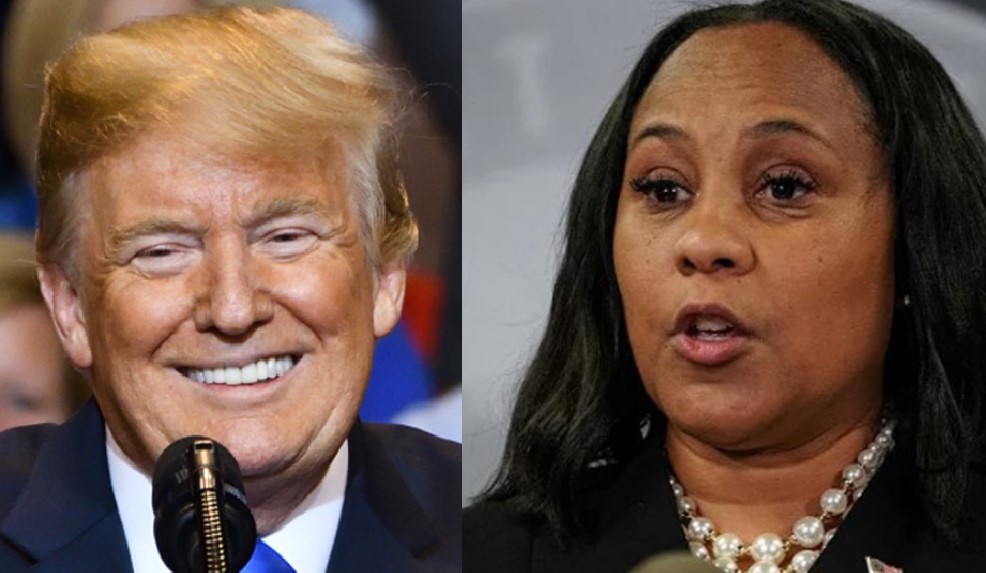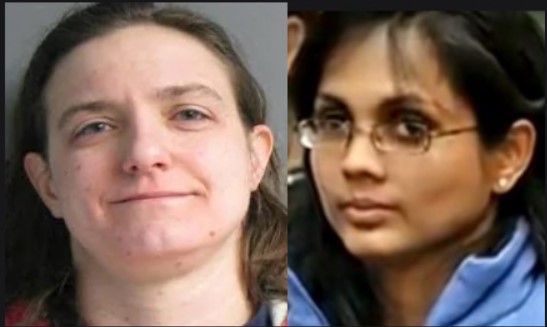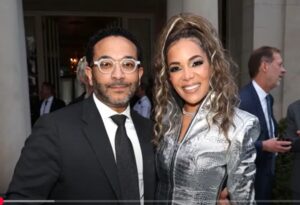GEORGIA AND MASSACHUSETTS CASES: PROSECUTORS HID EVIDENCE

THE YSL RICO CASE IS ACTUALLY A FANI WILLIS' CASE. SHE SUFFERED A SERIOUS BLOW TO HER PRIDE WHEN SHE COULDN'T CONTINUE THE TRUMP CASE
A Tale of Two States: Prosecutorial Misconduct and the Hidden Costs of Justice
BY SNN.BZ STAFF
In the realm of criminal justice, the integrity of the legal process is paramount. The recent allegations against prosecutor Adriane Love in the Fulton County, Georgia, YSL RICO trial have drawn unsettling parallels to past misconduct cases in Massachusetts, notably the Annie Dookhan and Sonja Farak scandals. These cases underscore a troubling trend where the pursuit of justice is compromised by the concealment of exculpatory evidence, revealing a systemic issue that spans across state lines.
Prosecutors hide exculpatory evidence because their first priority is in winning the case – not setting an innocent person free.

The Georgia Case: Adriane Love and the YSL RICO Trial
Adriane Love, a prosecutor in the high-profile YSL RICO trial, has faced serious allegations of hiding exculpatory evidence. This misconduct could have far-reaching implications for the defendants, who are already facing a complex and high-stakes legal battle. Exculpatory evidence—information that could potentially exonerate the accused or lessen their culpability—is a cornerstone of fair legal proceedings. Its deliberate suppression not only undermines the defense’s ability to mount a robust case but also erodes public trust in the judicial system.
The stakes in the Georgia case are particularly high due to the broader political context. Fani Willis, the District Attorney of Fulton County, is leading the prosecution with a high-profile goal: to hold former President Donald Trump accountable. Reports suggest that Willis, along with her lover Nathan Wade, visited the White House to meet with Vice President Kamala Harris, allegedly to discuss strategies related to Trump’s potential presidential bid. Such a political backdrop could add layers of pressure and scrutiny to the prosecution, raising concerns about whether the pursuit of political objectives is influencing legal tactics.
Massachusetts Scandals: Annie Dookhan and Sonja Farak
In Massachusetts, the scandals involving Annie Dookhan and Sonja Farak highlighted severe breaches of prosecutorial and forensic integrity. Dookhan, a former state chemist, was found to have falsified drug test results, leading to the wrongful conviction of thousands of individuals. Similarly, Farak, a chemist at a state drug lab, was caught tampering with evidence and using drugs in the lab (daily, for years), jeopardizing the accuracy of countless drug tests.
What compounded the issue in these cases was not just the misconduct itself but the systemic failure to address it transparently. Authorities in Massachusetts were criticized for prioritizing the preservation of the state’s reputation and its criminal justice system over the rights and freedoms of wrongfully convicted individuals. The reluctance to fully disclose the extent of the misconduct and the slow process of correcting wrongful convictions revealed a concerning tendency to protect institutional prestige at the expense of justice.
Comparative Analysis: Protecting Institutions vs. Pursuing Justice
The Massachusetts cases and the Georgia allegations share a common thread: the systemic concealment of evidence that could undermine convictions.
In both instances (Massachusetts and Georgia), the prosecutors’ actions—or lack thereof—highlight a broader issue within the criminal justice system: the conflict between institutional integrity and providing justice for innocent people.
In Massachusetts, the authorities’ focus on preserving the state’s reputation led to delays in addressing wrongful convictions and a lack of accountability for those responsible for the misconduct. Similarly, the accusations against Adriane Love in Georgia suggest a troubling disregard for the fundamental principles of a fair trial, potentially prioritizing case outcomes over legal ethics.
The added political stakes in Georgia, with the high-profile nature of the Trump prosecution, further complicates the situation, raising questions about whether legal strategies are being influenced by political objectives (in this case, keeping Donald J. Trump from the White House).
The consequences of such misconduct are profound. Wrongfully convicted individuals suffer the loss of freedom, while public trust in the justice system diminishes. The failure to address these issues transparently and effectively can have lasting repercussions, including the erosion of confidence in the legal process and the potential for further injustices.
Conclusion: The Need for Reform
The parallels between the Massachusetts scandals and the current situation in Georgia underscore the urgent need for reform within the criminal justice system. To prevent such misconduct, it is crucial to enhance oversight mechanisms, enforce strict ethical standards, and ensure that the pursuit of justice remains the foremost priority. The integrity of the legal system depends on the accountability of those who enforce it, and only through rigorous oversight and transparency can we hope to safeguard the rights of all individuals and maintain public confidence in our judicial institutions.
The Georgia Case: Adriane Love and the YSL RICO Trial
Adriane Love, a prosecutor in the high-profile YSL RICO trial, has faced serious allegations of hiding exculpatory evidence. This misconduct could have far-reaching implications for the defendants, who are already facing a complex and high-stakes legal battle. Exculpatory evidence—information that could potentially exonerate the accused or lessen their culpability—is a cornerstone of fair legal proceedings. Its deliberate suppression not only undermines the defense’s ability to mount a robust case but also erodes public trust in the judicial system.
This incident is not an isolated one. It echoes the misconduct witnessed in Massachusetts during the infamous Annie Dookhan and Sonja Farak cases, where evidence tampering and concealment had devastating effects.
Massachusetts Scandals: Annie Dookhan and Sonja Farak
In Massachusetts, the scandals involving Annie Dookhan and Sonja Farak highlighted severe breaches of prosecutorial and forensic integrity. Dookhan, a former state chemist, was found to have falsified drug test results, leading to the wrongful conviction of thousands of individuals. Similarly, Farak, a chemist at a state drug lab, was caught tampering with evidence and using drugs in the lab, jeopardizing the accuracy of countless drug tests.
What compounded the issue in these cases was not just the misconduct itself but the systemic failure to address it transparently. Authorities in Massachusetts were criticized for prioritizing the preservation of the state’s reputation and its criminal justice system over the rights and freedoms of wrongfully convicted innocent individuals.
The reluctance to fully disclose the extent of the misconduct and the slow process of correcting wrongful convictions revealed a concerning tendency to protect institutional prestige at the expense of justice.
Comparative Analysis: Protecting Institutions vs. Pursuing Justice
The Massachusetts cases and the Georgia allegations share a common thread: the systemic concealment of evidence that could undermine convictions. In both instances, the prosecutors’ actions—or lack thereof—highlight a broader issue within the criminal justice system: the conflict between institutional integrity and individual justice.
In Massachusetts, the authorities’ focus on preserving the state’s reputation led to delays in addressing wrongful convictions and a lack of accountability for those responsible for the misconduct. Similarly, the accusations against Adriane Love in Georgia suggest a troubling disregard for the fundamental principles of a fair trial, potentially prioritizing case outcomes over legal ethics.
The consequences of such misconduct are profound. Wrongfully convicted individuals suffer the loss of freedom, while public trust in the justice system diminishes. The failure to address these issues transparently and effectively can have lasting repercussions, including the erosion of confidence in the legal process and the potential for further injustices.
Conclusion: The Need for Reform
The parallels between the Massachusetts scandals and the current situation in Georgia underscore the urgent need for reform within the criminal justice system. To prevent such misconduct, it is crucial to enhance oversight mechanisms, enforce strict ethical standards, and ensure that the pursuit of justice remains the foremost priority. The integrity of the legal system depends on the accountability of those who enforce it, and only through rigorous oversight and transparency can we hope to safeguard the rights of all individuals and maintain public confidence in our judicial institutions.



